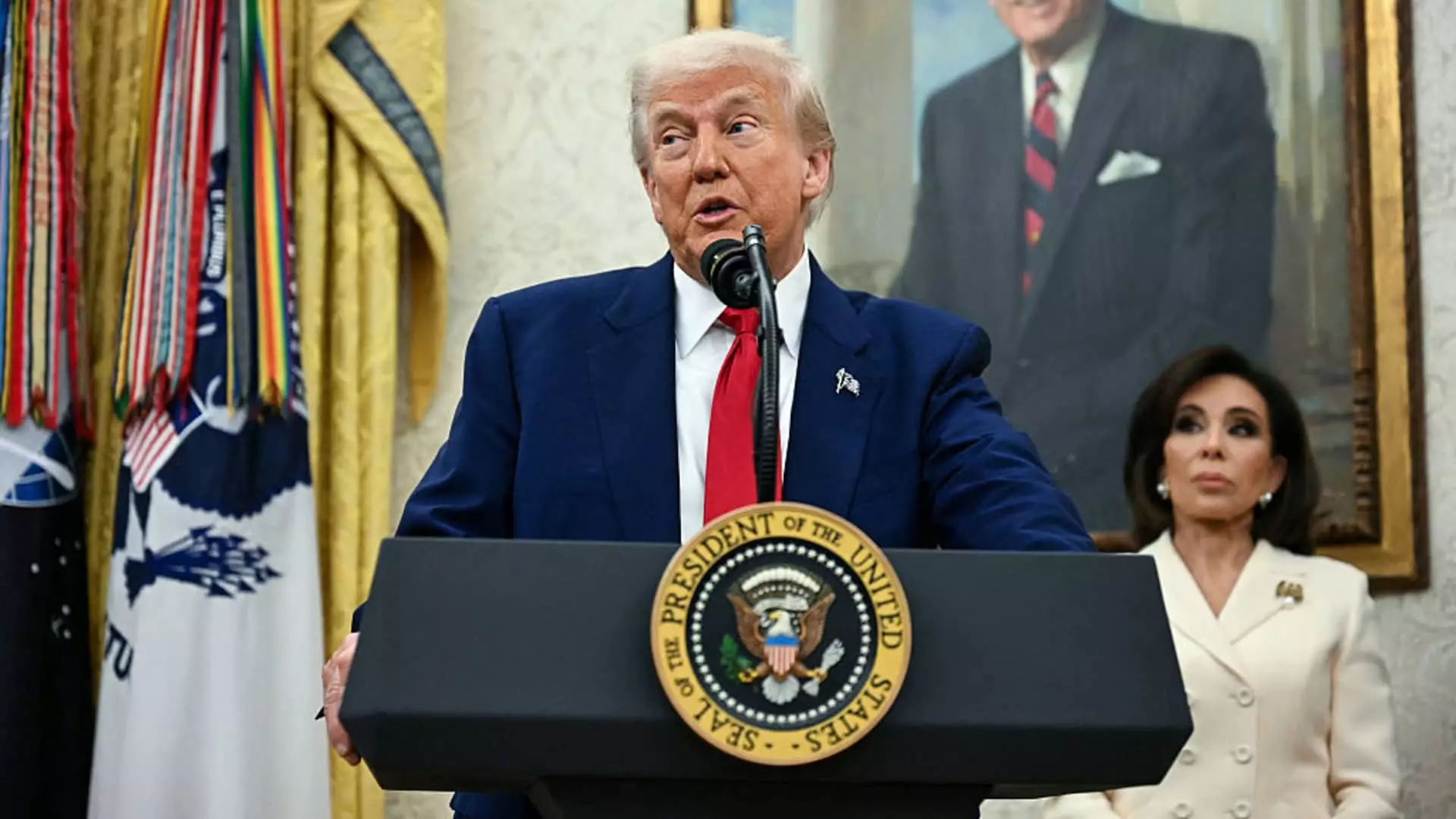When it comes to negotiating on the world stage, President Donald Trump’s methods can be described as erratic at best. The recent phenomenon dubbed the “TACO trade”—standing for “Trump Always Chickens Out”—serves as a fitting critique of his disjointed tariff strategy. The President’s constant back-and-forth on tariffs reflects not just a lack of consistency but also a profound misunderstanding of negotiation tactics. The frequent instances where Trump initiates steep tariffs only to delay or reverse them have created a sense of market instability that can hardly be ignored. Instead of displaying strength, these actions illustrate the volatility of his administration’s trade policy, leading to questions of credibility both domestically and internationally.
Trump’s Dance with the EU
In his recent remarks regarding the European Union, Trump seemed to conflate negotiation with intimidation. Declaring a 50% tariff only to postpone its implementation mere days later exemplifies a dangerous approach that values bluster over substance. Instead of fostering genuine dialogue and building trust, these tactics merely precipitate anxiety within the marketplace. After all, when an administration’s strategy hinges on the whims of a single leader, what it essentially communicates is that unpredictability reigns supreme. Trump’s insistence that such tactics represent the art of negotiation is troubling and indicative of a leadership style that often prioritizes short-term victories over long-term partnerships.
Market Reactions: A Reflection of Public Sentiment
The stock market’s oscillations in response to Trump’s tariff announcements offer a revealing lens through which to examine his approach. In moments when he ups the ante with punitive tariffs, the immediate market reaction is often one of trepidation, revealing investor apprehension about the fallout of such rhetoric. When he subsequently backtracks, the market rallies – an electric reaction that could be misinterpreted as endorsement. This back-and-forth consequently generates a false impression of confidence in a wavering policy framework. By treating tariffs as bargaining chips rather than serious economic measures, Trump undermines not just stock prices, but the very essence of the U.S. economy’s stability.
The Broader Implications of Tariff Fluctuations
From a broader perspective, Trump’s fluctuating tariff strategies suggest an unsettling normalization of unpredictability in international trade relations. For U.S. allies and adversaries alike, the clarity of trade negotiations has spiraled into chaos. A coherent foreign policy should prioritize long-term relationships built on mutual respect, yet Trump’s approach evokes skepticism and hesitance. His claims of having successfully jumpstarted negotiations may hold water on a superficial level, but what remains unacknowledged is the potential long-lasting damage to the reputation of the United States as a reliable trading partner.
Ultimately, the notion that threats can be used as tools for negotiation reveals a sense of desperation—an unwillingness to engage in meaningful dialogue but instead resorting to a tactics-based approach lacking genuine intent. It is crucial for us to demand a presidential strategy that embraces diplomacy over intimidation. The stakes are high; uncertainty breeds chaos, and in a global economy, consistent and reliable trade practices are essential for a prosperous future.

